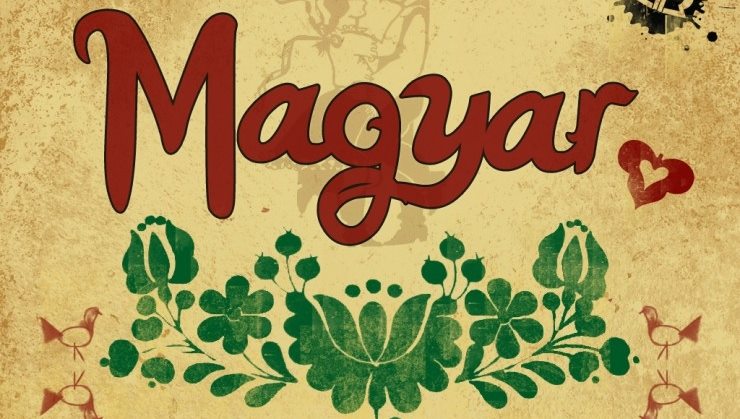15 Hungarian words that come from English
We have previously written about English words that have Hungarian origins. Now you can read about how the English language has affected the Hungarian language. What words do we use that come from English, and how did English affect particular areas where new words were needed.
To some, it might be surprising, but the English language has been influencing Hungarian from as early as the 17th century and not necessarily on just the word-level. American English has influenced Hungarian in speed. This means that earlier, Hungarian speech was slower, and by a lot. According to some people, the Hungarian language was spoken at about 11-12 phonemes per second. Today it has increased to 14-15 phonemes per second. This is a non-negligible, 25-30% increase in the speed of speech. In some cases, mainly in advertisements, speakers can say 25 phonemes a second. Formerly Hungarian was a slower language with clear articulation, but as the speed increases, it leads to the “swallowing” of syllables.
According to Monostory, the relationship with English has resulted in many exciting phenomena. Usually, proper foreign nouns would have become part of the Hungarian language assimilating to the Hungarian rules of pronunciation and writing, but in many cases, due to the increased language learning and probably the influence of foreign media, the pronunciation of many proper nouns and acronyms follow that of the English pronunciation. This has led to an ambiguity: some are used according to English rules, e.g., HBO, BBC, FBI and others follow the Hungarian rules: NATO, WHO, USA [nɑːto:, ve:hɑːo:, uʃʌ]. The English influenced many other things, even spelling, but that might be the topic of another time.
Now let us move on to how the English have influenced the words we use and what some of the most common terms are used by Hungarian speakers that come from the English language. From the 17th century to 1970, about 1,000 English words have become part of Hungarian. It is mainly in specialist areas where English has the most influence on language, as adopting existing terminology is much easier and faster than creating new ones. The best example of such an area would be IT. Although some of the older expressions have become “Hungarianised”, since it is evolving fast, some are kept as it is, but not everyone may know these terms. Some of the most common examples in the field of IT are:
computer – komputer [kɒmpjuː.tər]
The pronunciation is very similar, but the spelling becomes more identical to Hungarian words. The entirely “Hungarianised” word for it would be számítógép.
mouse – egér [ɛgeːr]
Although this one was completely localised, it comes from English.
monitor – monitor [mɒnɪtɒr]
The Hungarian language is exactly the same, and the pronunciation is a bit different as Hungarians use a much more voluble ‘r’.
icon – ikon [ɪkɒn]
Many words that are taken up from English are transported back to a so-called more Latin form. It is a form of pig Latin, not necessarily proper Latin, but it makes it more acceptable to Hungarian ears somehow.
document – dokumentum [dɒkʊmɛntʊm]
to install – installál [ɪnʃtʌllɑːl]
combination – kombináció [kɒmbɪnɑːt͡sioː]
format – formátum [fɒrmɑːtʊm]
Two examples that were taken from English around the ‘60s are:
teenager – tinédzser [tɪneːd͡ʒɛr]
The proper word would be tizenéves, but the former is a bit more widespread, at least among the younger generations.
hippie – hippi [hɪppɪ]
Now let us move to some words that might be used more frequently in the Hungarian language. One example of this would be ‘star’ and ‘celebrity’ which have transformed into everyday Hungarian public language quite fast.
star – sztár [stɑːr]
Although there is an equivalent, csillag and sometimes we use that to describe famous people, but in the public language, sztár is more often used.
celebrity – celeb [t͡sɛlɛb]
It is a shortened form of the English word with Hungarian pronunciation. It is used to describe people who are public figures with a sizeable fan-base.
influencer – influenszer [inflʊɛnsɛr]
This is an excellent example of how a new word in a specific area in English is transported into Hungarian and used as a term, rather than creating a new one. There are some similar words where there might be a Hungarian equivalent, yet we use the word we transported from the foreign language.
HR – HR [hɑːɛr]
Same writing, but different pronunciation. The proper Hungarian word would be személyzeti osztály.
popcorn – popcorn
The Hungarian equivalent of this would be pattogatott kukorica which describes that the corn is popped open.
If you found this interesting and would like to learn more words or phenomena that were influenced by the English language, please share this article with your friends or anyone who might be interested.

Read alsoWant to learn Hungarian? These are the best ways to do so

Read alsoExpats in Hungary: how much do you really need to speak Hungarian?
Source: Monostory.hu, Daily News Hungary
please make a donation here
Hot news
Orbán: As long as we lead the country, Hungary won’t get into war
Free children’s menu for mobile-free dining in 5 Budapest restaurants!
Opposition Momentum: Without us, we can’t find our way back to Europe
Warning: Traffic restrictions in Budapest today due to mass event
Hungarian FM Szijjártó in important talks with head of Zelensky’s office
Uber in Hungary: Secures dispatching license and launches in Budapest with game-changing partnership!



3 Comments
The etymology of the word ‘icon’ is ancient greek ‘eikōn’ which was later latinised to ‘icon’ in the mid 16th century. So the Hungarian spelling of ‘ikon’ is not related to latin (pig or otherwise). The Hungarian alphabet does not allow for a ‘c’ to sound like a ‘k’ so in english words that have a ‘c’ sounding like a ‘k’, Hungarian substitutes the c with a a k, as in ‘korrekt’ (correct). Nothing to do with latin whatsoever!
One word I remember well was when a motorcyclist cut in front of the bus I was riding which prompted the driver to yell “Idióta!” Sadly, he wasn’t having a very good day and this incident didn’t help.
Számítógép, egér, képernyő, dokumentum and ikon have nothing to do with English.